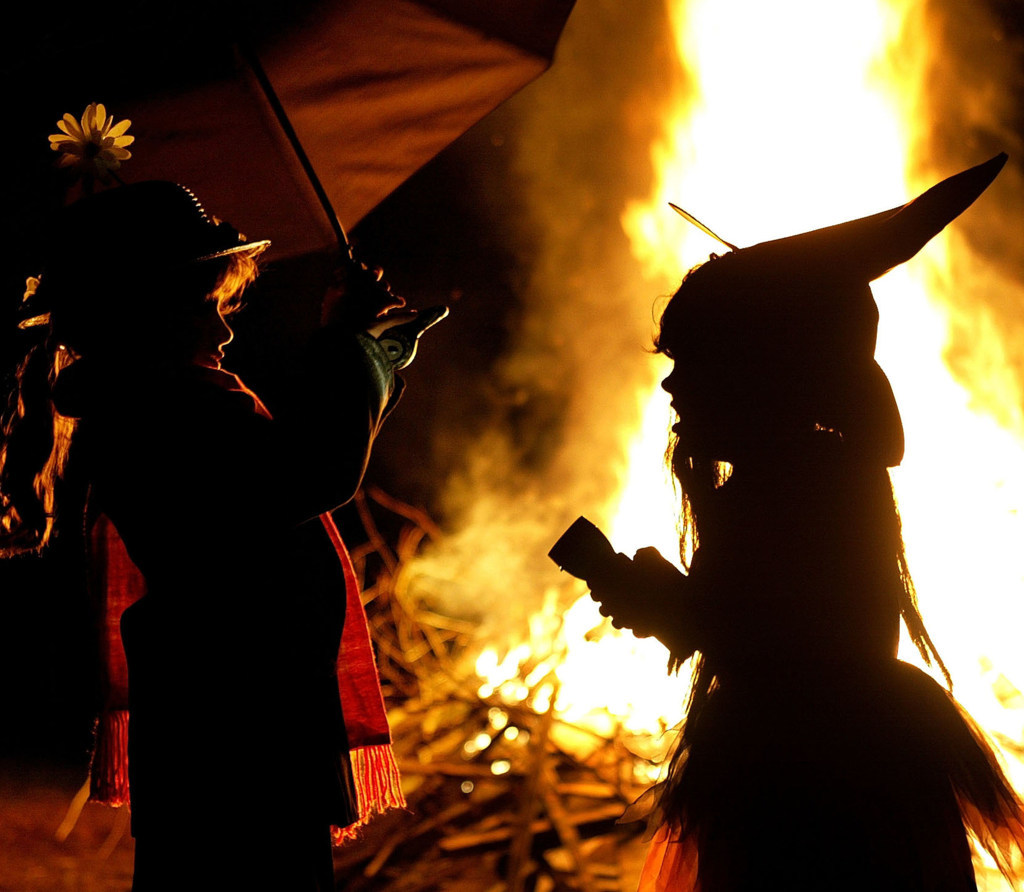
Dalit women in Rajasthan tortured, beaten and killed after being branded ‘Witches’
by Yash Saboo October 12 2017, 12:13 pm Estimated Reading Time: 2 mins, 40 secsA sting operation was carried out in September by Ms. Ahluwalia, chairperson of Baal Evum Mahila Chetana Samiti, along with two women volunteers and a team of journalists. Disguised as villagers, they approached ‘bhopas’ seeking treatment for ailments. When these ‘exorcists’ declared that the women were under the influence of witches and applied witchcraft, they secretly photographed them.

Sunita Devi (name changed), who spent 18 days in a room measuring 10 ft x 10 ft without a window, was held responsible for the illness of a school-going girl from a Jat home. A ‘bhopa’ (exorcist) told the family that Sunita was a witch, and Jats responded by attacking her modest house – the only one belonging to the backward Nai community in the village – and thrashing her husband and sons.
Those who attacked Sunita Devi’s house were arrested but are out on bail. They were arrested under Rajasthan’s Prevention of Witch-Hunting Act, 2015. An important provision of the Witch-Hunting Act is Section 8, empowering the State government to impose a collective fine on the inhabitants of a given area for abetting or participating in witch-hunting or sheltering the perpetrators. The fine is to be used for compensating and rehabilitating the victims. However, no such fine has been imposed so far. The Act provides for imprisonment from one to five years and a fine of ₹50,000 to anyone who stages such attacks.
“Rajasthan is the fifth State to enact the legislation on witch-hunting, but not a sole case among the 86 registered so far since 2015 has resulted in a conviction. Three of these involve murder charges,” pointed out Ms. Ahluwalia.
Another cry for help was simply ignored. Lakshmi Bai (name changed), 65, has been forced to live in Bhilwara for 12 years after being driven out of her native Dariba village on the suspicion of being a witch. Living with her husband as a social outcast, she attended the caste panchayat five times pleading that the odious tag is removed, but to no avail.
The occult practices in this hideous crime involve pulling women’s hair, beating them with a broom, iron rod and pliers and dancing in front of them with the chanting of unintelligible phrases to ‘liberate’ them. A woman ‘bhopa’, Jhumri Kalbeliya, dressed in a colorful attire, demanded cigarettes and dragged the woman volunteer to a smoke-fire. She put a knife to her throat, threatening the witch ‘residing in her body.’
The role of the so-called doctors was exposed after the sting operation. This outraged the civil society because of the failure of police to book ‘bhopas.’ Under Section 151 of Criminal Procedure Code, seven of them operating in Bhilwara and Chittorgarh were detained for a night but released the next day with a warning.
Bhilwara Superintendent of Police Pradeep Mohan Sharma said all ‘bhopas’ would be arrested and booked under the Witch-Hunting Act, but the activists say the State government should show stronger will. That is depressing on multiple levels; the fact that it took so long for such a law to be passed, as well as the fact that it seems to have had no effect whatsoever.




-173X130.jpg)




-173X130.jpg)
-173X130.jpg)
-173X130.jpg)